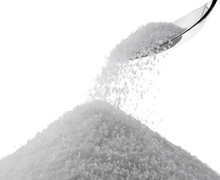
Cheat days are like get-out-of-jail-free cards for dieters and it’s even common with one of the most popular diet right now – the ketogenic diet. However, caution needs to be exercised when it comes to cheat days on the keto diet according to a new study at the University of British Columbia.
Researchers found study participants on a keto diet exhibited signs of damaged blood vessels after just one high glucose jolt. The result of the hyperglycemia episode was an eye-opener to the scientists who will be looking to expand the scope of future studies.
"The ketogenic - or keto - diet has become very common for weight loss or to manage diseases like type 2 diabetes," said study author Jonathan Little. "It consists of eating foods rich in fats, moderate in protein, but very low in carbohydrates and it causes the body to go into a state called ketosis."
Little said when the body is in ketosis it is starved of its preferred fuel, glucose, and that causes the body to burn stored fat for energy. That’s what leads to the weight loss and the reversal of symptoms of diseases like type 2 diabetes.
"We were interested in finding out what happens to the body's physiology once a dose of glucose is reintroduced," said researcher Cody Durrer. "Since impaired glucose tolerance and spikes in blood sugar levels are known to be associated with an increased risk in cardiovascular disease, it made sense to look at what was happening in the blood vessels after a sugar hit."
Researchers put nine healthy young men on a diet that had ratios consistent with a modern ketogenic diet. For seven days their food consisted of 70 percent fat, 20 percent protein and 10 percent carbohydrates. Prior to and after the seven days the men had the results measured after they consumed a 75-gram glucose drink, which is equivalent to a large bottle of soda.
"We were originally looking for things like an inflammatory response or reduced tolerance to blood glucose," says Durrer. "What we found instead were biomarkers in the blood suggesting that vessel walls were being damaged by the sudden spike in glucose."
Little said it was most likely the result of the body’s response to excess blood sugar which causes blood vessels to shed and possibly die.
"It was somewhat alarming," Little said. "Even though these were otherwise healthy young males, when we looked at their blood vessel health after consuming the glucose drink, the results looked like they might have come from someone with poor cardiovascular health."
While there were only nine subjects and he says more work needs to be done to verify their findings, Little said the results should make people consider their actions on a cheat day.
"My concern is that many of the people going on a keto diet—whether it's to lose weight, to treat Type 2 diabetes, or some other health reason—may be undoing some of the positive impacts on their blood vessels if they suddenly blast them with glucose, especially if these people are at a higher risk for cardiovascular disease in the first place,” he said. “Our data suggests a ketogenic diet is not something you do for six days a week and take Saturday off."
